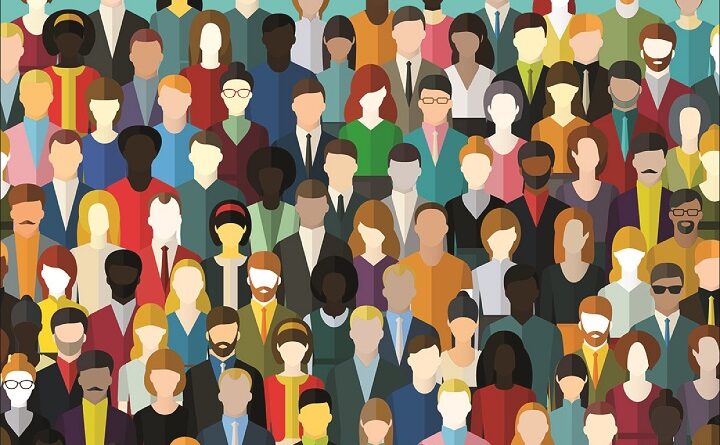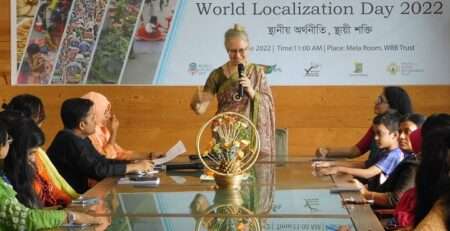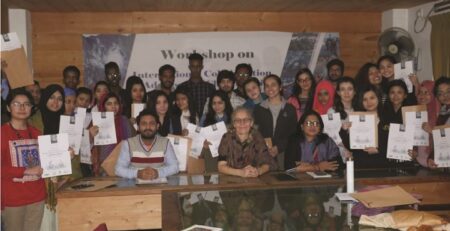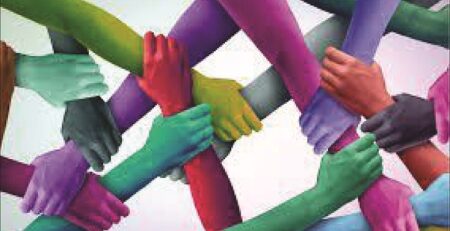Diversity in Employment
Basima Bunyadi, Mosammat Rasida Begum, May Thu Aye,
students, Asian University for Women;
Interns, Institute of Wellbeing
People are alike in many ways and different in many others. When we respect diversity, we acknowledge the similarities while respecting the ways that we are different. When we value diversity we do not try to make all of us the same. Instead we embrace the differences that make each of us unique. Diversity can include race, ethnicity, sex, religion, disability and sexual orientation. One reason why workplace diversity is important is that when you respect your employees, the productivity rate rises.
Compared to the past, many people today are becoming open minded and they are more educated and able to understand the value of diversity in the workplace. Diverse organizations involve groups with different languages, religions, ethnicities, race, and different skills and abilities. The organization or the employer can mobilize the differences and similarities in each and every employee and both of them (employee and employer) can have the benefits. One example is the Institute of Wellbeing, Bangladesh (IWB) which involves diverse groups of people with different abilities in order to make others understand the benefits of having diverse communities in a workplace. Diversity at IWB helps their staff to compare their ideas and select the best one for action as well to spread the mission of IWB.
Diversity can create unity in a society. As employees of different backgrounds and beliefs work together, they have the opportunity to learn about each other from various perspectives such as their socio-cultural beliefs, religion, food habits, and lifestyle. Additionally, it will also help them to reduce anxiety or get rid of any misunderstanding/misconception that they had about those different from themselves. Having a diverse environment is not only required for the workplace; it is also important in schools and universities, as that would help each of us to accept challenges and overcome them by offering diverse knowledge. For instance, the Asian University for Women (AUW) in Chittagong has a diverse environment since students are from different countries and they all have different cultural backgrounds and follow different religions and lifestyles. At the campus, students learn from each other’s socio-cultural beliefs and religion which teaches them how to respect others’ culture and beliefs. When we came to AUW, each of us used to ask a lot of questions to our roommates and classmates about religion and culture. The diverse environment triggered our curiosity to know about different backgrounds. Learning and interacting made us respectful to others and appreciative rather than fearful of difference.
Being in a diverse environment, whether in studies or employment, decreases the conservativeness towards gender, ethnicity, race and social class and extends friendliness along with reducing fear. When people with different backgrounds work together they will become compassionate and respectful to each other. More tolerant attitudes would in turn help to propagate gender equality and slowly create a strong bonding to achieve a common goal. As we know when many people work together for a common objective, it becomes easy to achieve. When we recognize the ability and the value of each other and respect each other, we will become more open-minded. Men would gain a better understanding of women’s ability and realize that women can do what a man does. For example, in Afghanistan as well some parts of Bangladesh, the people were so conservative that even if they were formally educated, they still did not allow women to work outside the home or to get an opportunity to go out. Cultures have now changed a lot. There are men and women working together in different fields such as policy making, organization, defense sectors and so on. And this experience will offer an opportunity to minority people to enter the job market.
When there are diverse people in a workplace, as they share their ideas and experiences to improve their capacity to work together, it helps that organization or the firm to gain more productivity by improving employees’ performance. Moreover, each of them will come up with innovative ideas that would help to gain more profits to the firms and to flourish in the competitive market to become successful. From the perspective of the Institute of Wellbeing, each of their innovative ideas will help to ensure an economics of wellbeing, quality of environment and to get a better society or country by creating awareness among the general public and spreading the knowledge to develop their country. To illustrate this, some of us are doing an internship at IWB from various background such as students from Afghanistan, Bangladesh, Myanmar, Nepal, and Bhutan. We are learning about many new topics like parklets, carfree city, anti-plastic campaigns, tobacco control and so on as well doing research on it which enhances our learning skill as well as making us aware about these issues. We will try to utilize the knowledge we are gaining in our daily lives and work to help create a better society.
On the other hand, diversity in the workplace, if not well managed, can have some negative impacts. There are communication issues; effective communication is a driving factor for success. Unfortunately, diversity can get in the way and it can directly impact productivity because of lack of cohesiveness within a short time. Another one is lack of freedom of speech; people cannot freely state their opinions or tell stories whenever they want for fear of being judged as prejudiced. Moreover, there will be conflicts; people often feel confused or even annoyed by individuals with views and backgrounds different from their own. Decision-making can be delayed due to diverging views and opinions, thus corporate decisions and actions take time. Along with the diversity, dissimilar cultural identities and values could negatively affect the overall team spirit hindering productivity. Different opinions from different backgrounds affect unity. The company might have people doing their own thing, especially if there is no protocol and authority to ensure common practices. And the organization will face an increased cost of training; apart from the usual training, an organization must invest in seminars, programs and lectures designed to promote diversity in the workplace.
But before we decide that diversity is impossible or unprofitable, remember what we said initially. While we acknowledge diversity, it is also important to remember the many ways that we are alike while respecting the ways we are different. Taylor Cox, a writer and comedian from Chicago, says we need, “Planning and implementing organizational systems and practices to manage people so that the potential advantages of diversity are maximized while its potential disadvantages are minimized.” For example, we have to treat others the way we want to be treated. We have to respect individual and cultural differences. There is a legal system that values equal opportunity and nondiscrimination in the workplace. In the end, diversity is likely to have more positive than negative effects, and is necessary given the diverse nature of our societies. Otherwise we are excluding too many people and viewpoints that could be valuable to us all.
Finally, we should also realize that flexibility is a competitive issue and management tool; as flexible work arrangements (such as part time work), parental leaves (both parents being encouraged to take time off after the birth of a child), dependent care service (work-based day care), and work-family stress management (private counseling). We should be aware of measuring performance based on value added, not hours worked. Moreover, the leader can assign the work arrangements alternatively and reward managers for promoting diversity. By following all these steps we can create a better working environment in future. Beyond the benefits to the workplace in terms of profits or improved productivity, there is the benefit of knowing that we are creating a welcoming environment for all members of society.













Leave a Reply